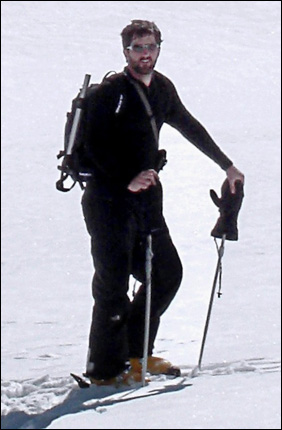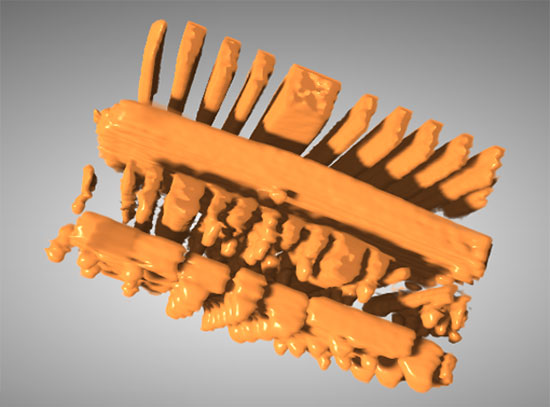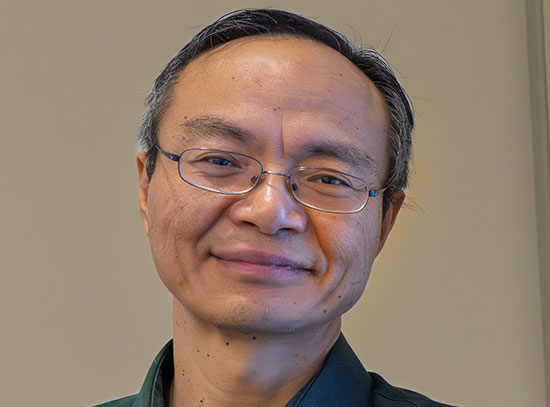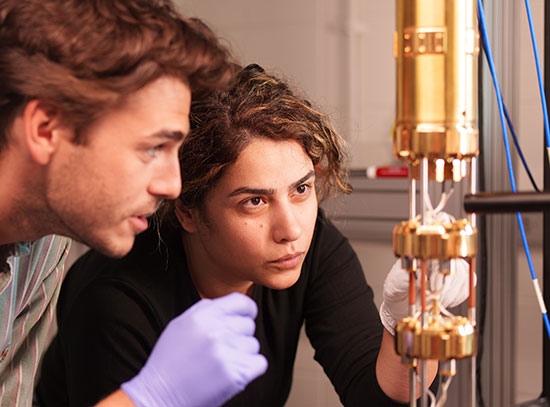STAR Spin
Quick Q&A with RHIC Postdoc Joe Seele
April 19, 2010

RHIC researcher and MIT postdoc Joe Seele takes a break from exploring the subatomic world to explore the Elk Mountain Range in Colorado.
Joe Seele is a postdoc at the Massachusetts Institute of Technology (MIT) and has worked with Brookhaven National Laboratory’s Relativistic Heavy Ion Collider (RHIC) since 2003. In 2008, he earned a Ph.D. in nuclear physics from the University of Colorado at Boulder and now, stationed at MIT, he uses data from the STAR detector at RHIC to better understand the proton’s spin.
How did you first learn of RHIC?
I first learned about RHIC as an undergrad when I worked on another proton spin experiment in Germany. Since the experiments at RHIC were the “competition,” it was only natural that I learned about them too.
What are you trying to achieve there?
I am trying to understand how all the many pieces that make up a proton come together to give the proton its spin.
Why do you work with RHIC?
It’s the only polarized proton collider in the world! It allows us to study proton spin in ways that were never done before at any other accelerators.
Have you made any discoveries at RHIC?
I’d say no, but discovery is a tricky thing — it implies something unexpected in addition to not having been seen before. I’ve measured quantities that have never been measured before, but they’ve all been in line with what was expected based on our current knowledge.
What was your favorite “RHIC moment?”
Seeing the W boson for the first time. In 2009, RHIC ran at its highest collision energy yet. This made it possible to see a different type of particle called the W boson. We only expected to see a handful of them in the billions of particle collisions that happened. Sure enough, after many months of work, the Ws emerged from the haystack of data.
Who else do you work with?
I work with a gaggle of graduate students and researchers based at MIT as well as a larger group of physicists at STAR, all interested in proton spin phenomena.
Do you have any other special talents/interests?
I love anything that involves doing slightly crazy activities in the mountains. In my vast spare time (tongue fully in cheek) I am an enthusiastic mountaineer, backcountry skier, and long-distance runner.
Is there anything else you would like to add?
Its often said that no physicist works in a complete vacuum, so I would like to thank all my fellow scientists who have had an impact on my knowledge of, understanding of, and passion for measurement and physics.
 Think you or one of your colleagues has a good story to tell? Email us! Although we can't write about everyone, we would love to hear your ideas and suggestions.
Think you or one of your colleagues has a good story to tell? Email us! Although we can't write about everyone, we would love to hear your ideas and suggestions.
2010-1708 | INT/EXT | Newsroom









